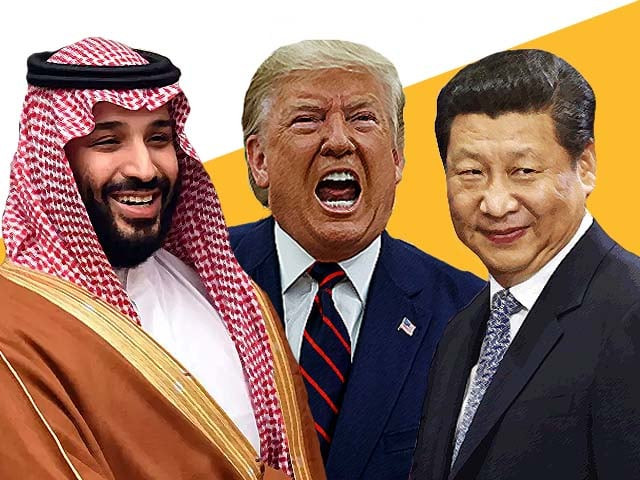The Wall Street Journal published a piece last week titled “Saudi Arabia, With China’s Help, Expands Its Nuclear Programme”, which cited unnamed United States (US) officials who speculated that those two countries’ reported cooperation in the nuclear energy sphere might be exploited to help the Kingdom develop nuclear weapons. This is an entirely false narrative that reads as nothing more than a rehash of the already debunked claims from a few decades ago that China allegedly did something similar vis-a-vis Pakistan’s nuclear weapons programme.
China has zero interest in proliferating nuclear weapons across the world, but claiming otherwise is intended to serve as yet another information warfare attack against the country’s growing global reputation by portraying it as a so-called “rogue state” that must therefore be “contained”. What’s so striking about this latest fake news provocation is that stalwart American ally Saudi Arabia is also caught up in this conspiracy. That’s not so surprising upon further contemplation, however, since the US is actually real jealous of Chinese-Saudi ties.
Those two countries began to cooperate real closely over the past decade due to China’s ever-increasing need for energy and Saudi Arabia’s desire to attract non-energy investments through its Vision 2030 programme of commercial and industrial development. Vision 2030 perfectly dovetails with China’s Belt & Road Initiative (BRI), and the Kingdom’s geostrategic position at the crossroads of Afro-Eurasia and astride both the Gulf and Red Sea makes it one of the most attractive partners on the planet for the People’s Republic.
That explains why they signed $65 billion worth of deals in early 2017 during Saudi King Salman’s historic visit to China. The strategic overlap between Vision 2030 and BRI opens up the exciting potential for Saudi Arabia’s post-energy economy (prospectively shaped by future Chinese commercial and industrial investments) to connect with China’s via BRI’s flagship project of the China-Pakistan Economic Corridor (CPEC) through a western branch that can tentatively be described as W-CPEC+.
The flagship project of Saudi Arabia’s Vision 2030 is the NEOM futuristic city that’s planned for the northwestern part of the country, and it’s expected that Chinese investors will come to play a crucial role in its construction and forthcoming economic activities. Regarding the related financial sphere, there’s been speculation among observers over the last couple of years that China and Saudi Arabia might team up to create what some have called the “petroyuan”.
These experts believe that the increased purchase of Saudi energy with Chinese yuan could erode one of the most significant instruments of American hegemony, the petrodollar, and thus facilitate the ongoing global transition to multipolarity. With all these game-changing opportunities in mind, it’s natural that Saudi decision makers would regard China as a reliable balancing force for counteracting the US’ domineering influence over their country and helping it become more strategically autonomous in the long term.
The US is predictably displeased with these developments, which is why some of its officials are “leaking” fake news to the Wall Street Journal, hoping that this can put additional pressure on Saudi Arabia to reconsider its close relations with China. America also doesn’t like that the two cooperate in the military sphere following the construction of a Chinese drone factory in the Kingdom a few years ago. It’s especially furious that Saudi Arabia supports China’s anti-terrorist policies in Xinjiang since this debunks the fake news that they’re “anti-Muslim”.
The overarching theme is that even America’s closest allies realise that its unipolar hegemony is in decline and are therefore wisely reaching out to China to help manage their transition into the emerging multipolar world order. The US is proverbially kicking and screaming, throwing a temper tantrum akin to a spoiled child’s in a desperate effort to slow down this inevitable trend, yet nothing that it says or does will ever succeed in sabotaging Chinese-Saudi relations since these two countries have a perfect alignment of strategic interests.



COMMENTS
Comments are moderated and generally will be posted if they are on-topic and not abusive.
For more information, please see our Comments FAQ